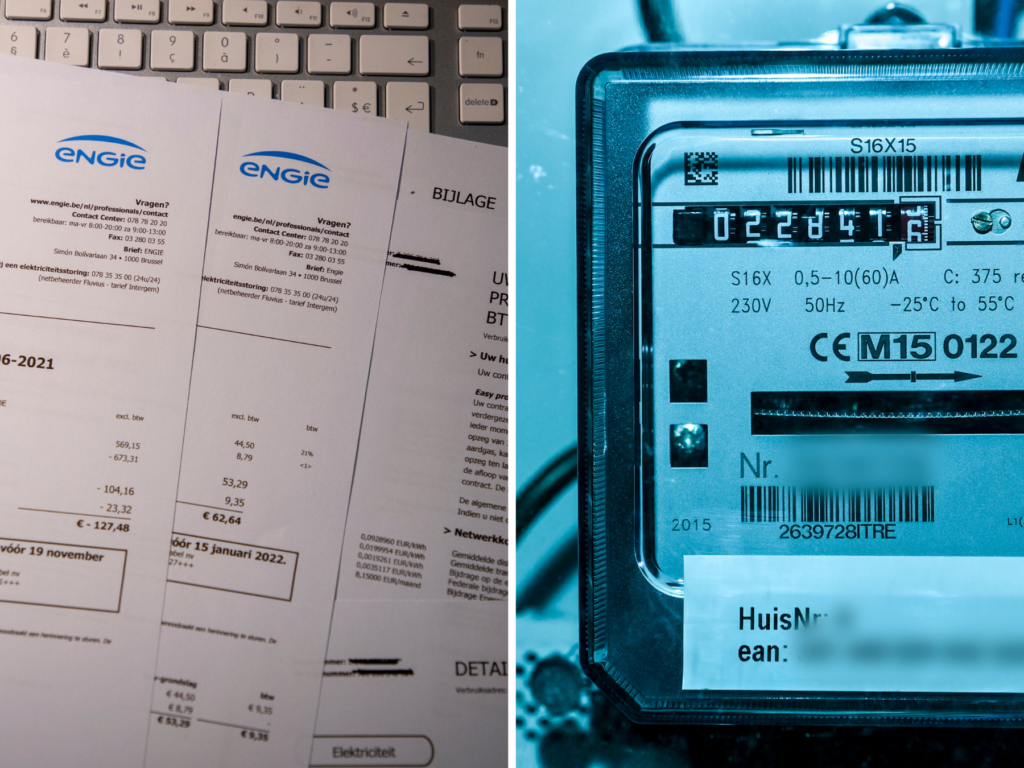After a continued fall in prices, January's fixed energy tariffs are at their lowest level in more than two years – which could spur people to take out such contracts en masse. But is it the right choice?
The substantial fall in energy prices from last month is continuing at the start of 2024. Despite the freezing weather and concerns that prices could be pushed up by the ongoing conflict in the Middle East, confidence in energy markets remains strong.
Europe's gas reserves are currently about 80% full – enough to see out winter even without inflows, which are running smoothly from Norway and other suppliers.
All this is reflected in prices. On the Dutch wholesale gas market, Europe's most commonly used price benchmark, the price is hovering around around €30 per MWh for delivery in the coming months. By comparison, at the peak of the energy crisis in August 2022, it was €345 per MWh.
Consumer protection organisation Test Achats noted that this is also reflected in suppliers' energy tariffs: "Not only have these been falling for two months in a row, but there are also more and more fixed contracts to choose from."
On average, prices for fixed contracts were down 7.30% for electricity and 11.84% for natural gas in January 2024 compared to the previous month, Energy-Vergelijker.be noted. The annual fixed-rate energy bill for a Belgian family with average consumption was 4.95% cheaper in January 2024 than in December. Compared to a fixed contract concluded in November 2023, it is €435 less for a typical electricity and gas consumption.
Pros and cons
The majority of consumers (around two-thirds) in Belgium prefer to be on a fixed contract. But since all suppliers switched to only offer variable contracts during the energy crisis, many households are now on variable contracts. Could now be the time to change?
Consumer rights group Test Achats has noted that for people who want to head into winter with peace of mind, the current prices are worth locking in by taking out a fixed contract. This advice is echoed by Energy-Vergelijker.be, which points to potential shocks to the energy market which make it worth comparing energy contracts.
"You are still in time to take out a fixed contract and opt for more security," Maxime Sonkes, general director of Energie-Vergelijker.be, explained.
However, Test Achats highlighted the "hefty risk premium" that people on fixed contracts have to pay compared to variable contracts. In general, variable contracts are less expensive than fixed ones because they carry more risk.
This fee can be as high as €150 for some suppliers. "Anyone switching to a fixed contract is best doing so intending to lock in prices for at least a year," said Laura Clays, spokesperson for Test Achats.
Clays also noted that prices have also fallen for people on variable contracts, who automatically enjoy price drops without switching. Under present conditions, this makes a variable contract for an average gas and electricity consumption an estimated €400 cheaper per year than a fixed contract. "The extra price you pay as a customer for a fixed contract is your insurance to cover the risk of rising prices."
In this light, variable contracts might be the better match for households that can afford a temporary price increase. However, anyone for whom a rise in tariffs would be catastrophic for their finances would be better off opting for a fixed contract, even with the fee that has to be paid. "In these uncertain times, with a fixed contract you avoid unpleasant surprises and sky-high bills," said Sonkes.

